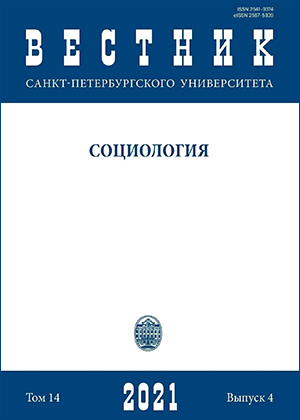Problems of state regulation of social security during a pandemic
DOI:
https://doi.org/10.21638/spbu12.2021.405Abstract
This article provides a characteristic of approaches to understanding social security, and also analyzes one central problem: the possibility of identifying and assessing risk. In modern society, perceptions of risk are determined by a political vision of the situation. In this regard, attention is increasing turned to strategies of state regulation and the definition of measures of state responsibility in ensuring security, especially during a pandemic. At the moment, a number of questions have arisen that require study, since the answers to them largely determine the degree of pain in the passage of the pandemic by different societies. The article examines the validity of introducing a wide range of prohibitive measures, which with a high degree of probability can lead to a deterioration in the social security of the population and an expansion of the crisis of power in all democratic societies. The author focuses on the growing processes of normalization and discipline, which significantly complicate social interactions in various spheres of life and devalue democratic values. The analysis leads to the conclusion that government strategies to combat the pandemic should be associated with the partnership of all security agents, including individuals. This, in turn, will be able to restore the confidence of the population in the authorities, as well as lay the foundations for the development of a safety culture that will activate society in protection against existing and possible future threats to public health.
Keywords:
pandemic, social security, risks, political decisions and state responsibility, normalization and discipline
Downloads
References
References
Downloads
Published
How to Cite
Issue
Section
License
Articles of "Vestnik of Saint Petersburg University. Sociology" are open access distributed under the terms of the License Agreement with Saint Petersburg State University, which permits to the authors unrestricted distribution and self-archiving free of charge.




